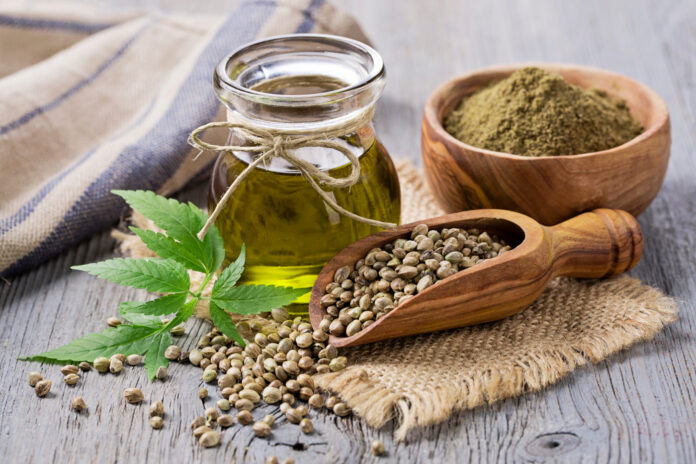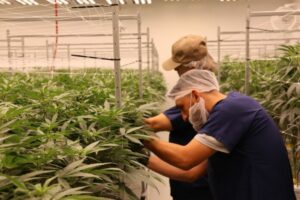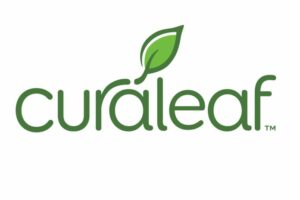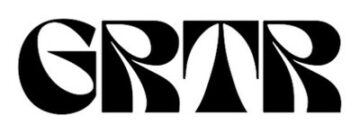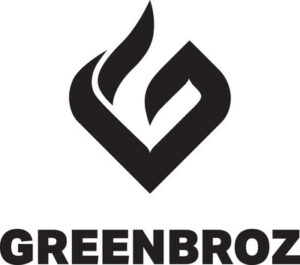You may have heard a thing or two about hemp in the news recently, but what is this “miracle plant” and why isn’t it taking the world by storm? Widespread confusion about the nature and benefits of hemp, as well as people mixing it up with marijuana — another substance derived from the Cannabis sativa plant — have prevented people from embracing hemp on as wide of a scale as they otherwise might.
An increase in hemp’s popularity has led to an increase in the spread of misinformation about these plants. When you add the amount of media sensationalism that often has arisen with regard to coverage of the hemp and marijuana industries, it’s understandable why so many people are confused.
What is hemp and how is it used?
The difference between hemp and marijuana, at least in the United States, is that federal law decrees hemp may have THC levels of no more than 0.3% by dry weight. Tetrahydrocannabinol — better known as THC — is a psychoactive cannabinoid naturally present in varying concentrations in all Cannabis sativa plants.
Because hemp contains such a low concentration of THC, it does not produce the “high” for which marijuana is famous. Thinking hemp can get you high (absent manipulation in a laboratory or infusion of other chemicals) is not only one of the most commonly misheld assumptions about the plant, but also the biggest obstacle to its widespread acceptance and adoption.
Although it does not contain much THC, hemp may contain significant amounts of other cannabinoids—like CBD—that may be beneficial. Hemp-based CBD products have been found to have many positive effects on users’ health. For example, CBD may be able to help with conditions like anxiety, depression, and chronic pain.
However, it isn’t just medicinally that hemp has shown a great deal of potential. Many have begun to explore ways hemp can be used in consumer products. For example, hemp seeds can be eaten raw, or processed into milk substitutes or protein powder, making them an exciting plant-based dietary alternative. Additionally, some innovators have been able to use hemp fiber for sustainable initiatives, such as environmentally friendly textiles or plant-based plastic alternatives.
Legality and safety
One of the most complicated misunderstandings around hemp is its legality — and understandably so, given its complex regulatory status. Unlike marijuana, which remains on the list of federally controlled substances, hemp was removed as part of the Agricultural Improvement Act of 2018, meaning that hemp is not illegal on a federal level. However, it is important to realize some states and jurisdictions still prohibit the possession or use of any cannabis-derived compounds, including hemp and CBD.
Users of hemp and CBD products should also understand the safety considerations they must take regarding these compounds. There’s just as much danger in assuming that all CBD products are safe as in assuming all of them are dangerous. Remember, not all hemp-derived products are created equal. Consumers should do their research before buying anything, and look for products that have gone through independent testing to ensure their safety and efficacy.
Defeating misconceptions
To help combat misconceptions, those who use hemp-based products should ensure they themselves are informed and then share research and information with their peers to spread awareness about the truth of this wonderful plant.
Additionally, those who hope to end misinformation should advocate for a clearer regulatory environment for hemp and CBD products. By creating a process by which hemp and CBD products can apply for FDA approval, they will be subjected to the same rigorous testing that medical products must undergo to be sold on the market. This will ensure the consistency and safety of commercially available hemp and CBD products, making them more accessible to the people who need them most.
Hemp is a wonderful plant with many exciting potential applications. Understanding the true nature of the plant and how it compares to marijuana is the first step in correcting the commonly held misconceptions many people continue to hold.
—
Jorge Olson is cofounder and chief marketing officer at two publicly traded companies, Hempacco and Green Globe International. Born in Tijuana, Mexico, without running water or electricity, he now is the author of business and inspirational books, as well as an authority on consumer packaged goods, beverages, and wholesale distribution. His partners include entrepreneur Sandro Piancone, Cheech Marin, Tommy Chong, James Linsey, and Rick Ross.
- SEO Powered Content & PR Distribution. Get Amplified Today.
- PlatoData.Network Vertical Generative Ai. Empower Yourself. Access Here.
- PlatoAiStream. Web3 Intelligence. Knowledge Amplified. Access Here.
- PlatoESG. Carbon, CleanTech, Energy, Environment, Solar, Waste Management. Access Here.
- PlatoHealth. Biotech and Clinical Trials Intelligence. Access Here.
- Source: https://mgmagazine.com/cannabis-news/dispelling-common-misunderstandings-about-hemp/
- :has
- :is
- :not
- $UP
- a
- Able
- About
- absent
- acceptance
- accessible
- Act
- add
- Additionally
- Adoption
- advocate
- All
- also
- alternative
- alternatives
- amount
- amounts
- an
- and
- Another
- any
- anything
- applications
- Apply
- approval
- ARE
- around
- AS
- assumptions
- At
- author
- authority
- available
- awareness
- BE
- been
- before
- begun
- beneficial
- benefits
- Better
- between
- Beverages
- Biggest
- Books
- born
- business
- but
- Buying
- by
- CAN
- Can Get
- Cannabinoid
- cbd
- cbd products
- chemicals
- chief
- chong
- clearer
- cofounder
- combat
- commercially
- Common
- commonly
- Companies
- complex
- complicated
- concentration
- conditions
- confused
- confusion
- consumer
- Consumer products
- Consumers
- contain
- contains
- continue
- controlled
- coverage
- created
- Creating
- DANGER
- Dangerous
- deal
- depression
- Derived
- difference
- distribution
- do
- does
- dry
- effects
- efficacy
- electricity
- embracing
- end
- ensure
- Entrepreneur
- Environment
- environmentally
- environmentally friendly
- equal
- example
- exciting
- explore
- famous
- fda
- Federal
- federal law
- federally
- First
- For
- found
- friendly
- from
- get
- given
- globe
- gone
- goods
- great
- Have
- he
- Health
- heard
- Held
- help
- Hemp
- High
- his
- hold
- hope
- How
- However
- HTML
- http
- HTTPS
- Illegal
- important
- improvement
- in
- include
- Including
- Increase
- independent
- industries
- information
- informed
- infusion
- initiatives
- innovators
- Inspirational
- into
- IT
- ITS
- james
- jpg
- jurisdictions
- just
- known
- laboratory
- Law
- least
- Led
- Level
- levels
- like
- List
- Look
- Low
- Making
- Manipulation
- many
- many people
- marijuana
- Market
- Marketing
- May..
- meaning
- Media
- medical
- Mexico
- might
- Milk
- misconceptions
- Misinformation
- Mixing
- more
- most
- much
- must
- Nature
- Need
- New
- news
- now
- obstacle
- of
- Officer
- often
- Oil
- on
- ONE
- only
- opens
- or
- Other
- otherwise
- packaged
- part
- partners
- peers
- People
- photo
- plant
- plants
- plastic
- plato
- Plato Data Intelligence
- PlatoData
- popularity
- positive
- possession
- potential
- present
- prevented
- process
- processed
- produce
- Products
- prohibit
- Protein
- publicly
- Raw
- realize
- recently
- regard
- regarding
- regulatory
- remains
- remember
- Removed
- research
- rigorous
- running
- safe
- Safety
- same
- Scale
- seeds
- Share
- should
- shown
- significant
- So
- sold
- some
- spread
- States
- Status
- Step
- Still
- Storm
- substance
- such
- sustainable
- Take
- taking
- Testing
- textiles
- than
- that
- THC
- The
- the world
- their
- Them
- themselves
- then
- These
- they
- thing
- Thinking
- this
- those
- Through
- to
- traded
- true
- truth
- two
- undergo
- understand
- understandable
- Understandably
- understanding
- United
- United States
- unlike
- usda
- use
- used
- varying
- was
- Water
- ways
- WELL
- What
- What is
- when
- which
- WHO
- wholesale
- why
- wide
- widespread
- will
- with
- without
- wonderful
- world
- you
- zephyrnet

